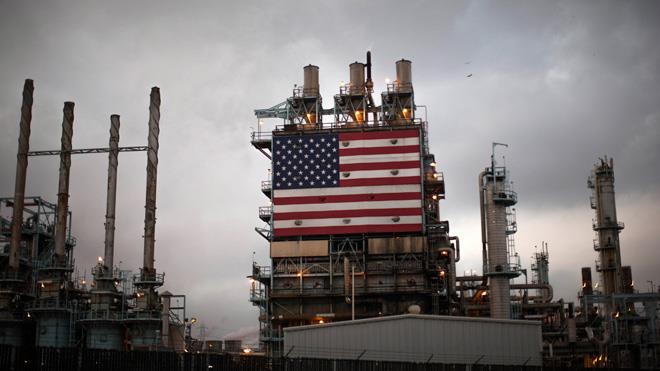HOUSTON, Jan. 16 (Xinhua) -- U.S. West Texas Intermediate crude oil price hit the highest closing price since 2014 last week, reflecting current market conditions, an analyst said Tuesday.
The price, riding a week of daily increases of 4.65 percent from Jan. 5 to Friday, closed last week at 64.30 U.S. dollars a barrel. After the U.S. market closed on Monday for the Martin Luther King federal holiday, the rising trend retreated a bit on Tuesday, with the price closed at 63.86 dollars a barrel.
Despite the slight dip in prices on Tuesday, the closing price of 63.86 dollars on the day was up 50.15 percent over the lowest price of the past 12 months, which was 42.53 dollars a barrel on June 21, 2017.
Ron Ripple, a professor of energy business and finance at the University of Tulsa in Oklahoma State, said he believed the increase reflects current market conditions.
"The increase in the price of oil is based on demand and the drawdown of the storage of crude oil" in the United States, Ripple said.
However, unlike ten years ago, it is difficult today to foretell what impact a change in prices will have on production rates, as "the world is still learning how reactive production activity is to the change in prices," the professor said.
"With technology and the cost with shale production, no one knows how much it will ramp up," he added.h If the forecast by the U.S. Energy Information Administration (EIA) holds true for 2018, U.S. oil production will reach a daily average of 10.3 million barrels, up about 1 million barrels a day over 2017 and the highest daily average since 1970.
According to the EIA reports, the production will be slightly ahead of consumption, while the average price will be 55 dollars a barrel in 2018.
One factor of the forecasted increase in production, and perhaps the uncertainty of prices that could follow, is the ability of U.S. producers to find customers through the export market, the reports said.
In December 2015, the United States ended its restrictions on oil exportation, which effectively put U.S.-produced oil on the global market.
Ripple said the global oil market today lends credence to the "one great pool" thinking promoted by late economist Morris A. Adelman, whom Ripple referred to the godfather of oil and gas economics.
Adelman, an energy economist of the Massachusetts Institute of Technology known for his theory that oil supplies were inexhaustible, said the world oil market is "one great pool" in the 1980s.





